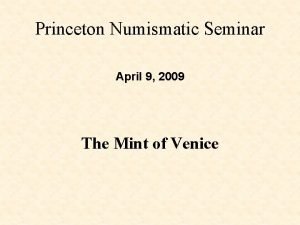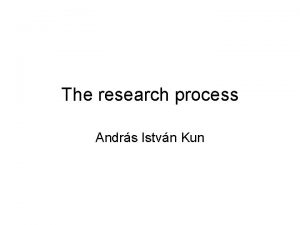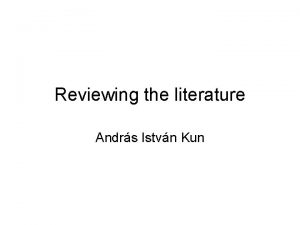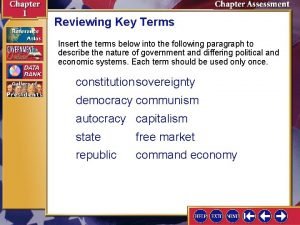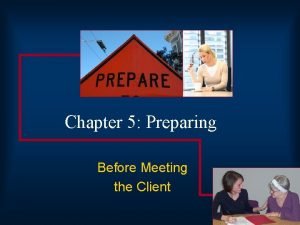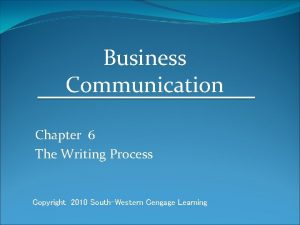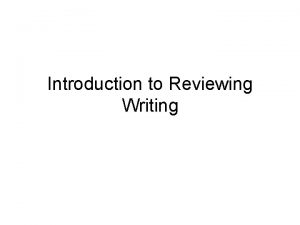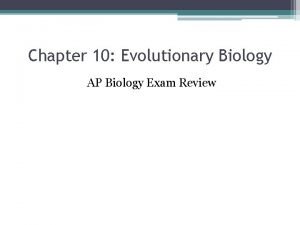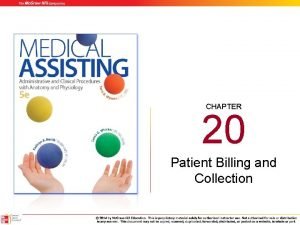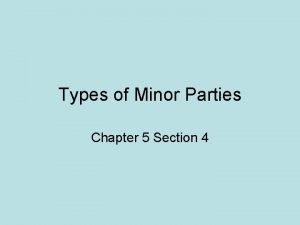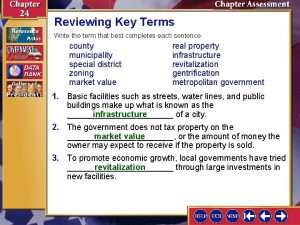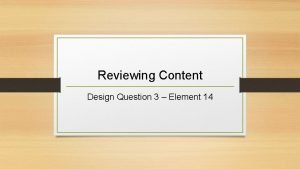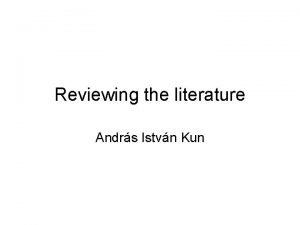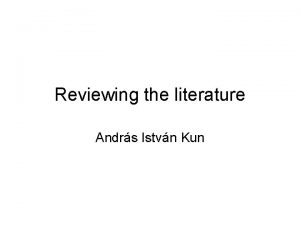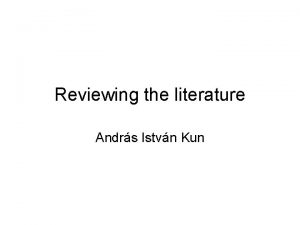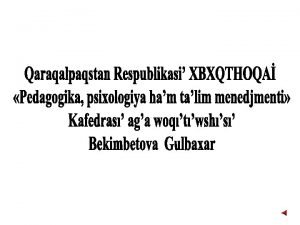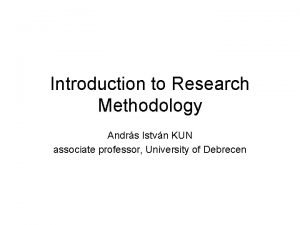Reviewing the literature Andrs Istvn Kun An 8














- Slides: 14

Reviewing the literature András István Kun

An 8 step model of research processes 0. Identify broad area of research • discipline, school 1. Formulating the research problem (specification) 2. Conceptualising • valid, workable, managable 3. Constructing an instrument for data collection 4. Selecting a sample (sampling) 5. Writing a research proposal • ‘Final’ research questions 6. Collecting data 7. Processing data 8. Writing a report

Cyclic (‘never-ending’) process of research Concepts theory Data analysis Inductive Deductive Research question Empirical data Where is the place of literature reviewing?

Functions of reviewing literature • Knowledge basis • Theoretical background • Help to find a research problem: – What is known and what is unknown – How can you contribute to the existing knowledge body of your profession – Finding the appropriate hyptheses (abduction) • Help to find out what methodology to use – Formal hypotheses, research techniqe, sampling… • Enables you to contextualize your findings

Paradox of literature review • You read to know, but • You have to know what to read (and you have to have some knowledge to understand) • Solution: iterative process of research reviewing

Improving methodology • What are the accepted methodologies • Methodological problems and solutions

Knowledge basis • To some extent it is needed to show the context of your research and your findings • Obligatory chapter of Master and Ph. D theses

5 steps of reviewing literature 1. Search for existing literature in your of study; 2. Review the literature selected; 3. Develop a theoretical framework; 4. Develop a conceptual framework; 5. Writing up the literature reviewed.

Main sources • • Books Journals Grey literature Statistical data

Books • Availability – – Libraries Bookshops Bibliographies (!) Internet: computer catalogs (keywords, subject) • Advantages: greater likelihood of importance, relevance, quality • Disadvantages: not up to date, price, avaliability, quality-control (bibliography!) • They serve best as starters

Journals • Advantages: up-to-date (depends on the journal), area-specific journals • Disadvantages: need more knowledge to understand • They serve best for focused study • Availability: – Libraries – Electronic databases (!) – Internet

Gray literature • Grey literature (or gray literature) is a term used variably by the intelligence community, librarians, and medical and research professionals to refer to a body of materials that cannot be found easily through conventional channels such as publishers, "but which is frequently original and usually recent„ – – – Working papers Theses Company documents Magazines etc.

Where to start… • Electronic databases: – www. jstor. org – search. epnet. com (EBSCO database) – www. eisz. hu (many databases) – http: //www. nber. com/ – http: //econpapers. repec. org/ • University pages • Pages of libraries • Library…

Thanks for your attention
 Andrs bello
Andrs bello Andrs mint
Andrs mint Istvn
Istvn Istvn
Istvn Febabook
Febabook Communism capitalism venn diagram
Communism capitalism venn diagram Preparatory arranging social work
Preparatory arranging social work Five main stages of writing business messages
Five main stages of writing business messages What is reviewing
What is reviewing Reviewing key concepts reproductive barriers
Reviewing key concepts reproductive barriers Chapter 20 patient collections and financial management
Chapter 20 patient collections and financial management Chapter 5 section 4 the minor parties reviewing key terms
Chapter 5 section 4 the minor parties reviewing key terms Reviewing key terms
Reviewing key terms Reviewing key concepts: flatworms, annelids, and roundworms
Reviewing key concepts: flatworms, annelids, and roundworms Reviewing content strategies
Reviewing content strategies

